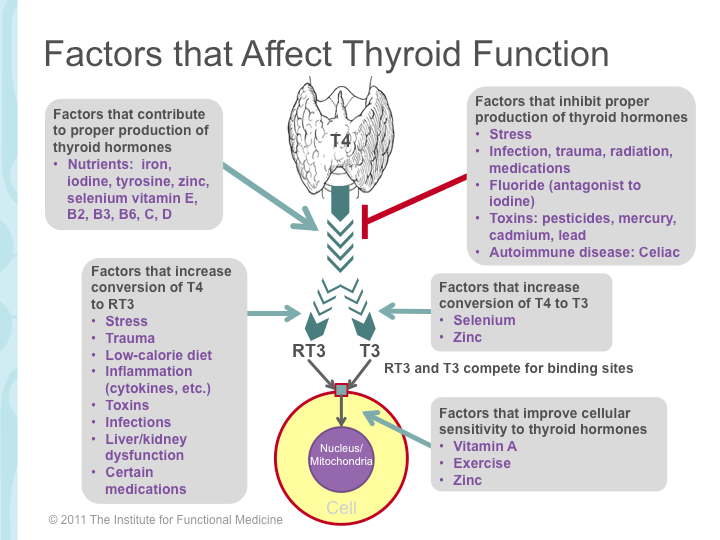Although these are different diseases, the relationship between a thyroid disorder and the risk of developing depression has been known for some time, so a common fact is that patients with hypothyroidism suffer from decline, discouragement and apathy to the point of being depressed by this common hormonal change in the population.
A few years ago, an interesting Psychology Today article warned of a fact that should invite us to think. Amir A. Afkhami, a psychiatrist at George Washington University, noted that behind many mental problems there may be a simple thyroid problem.
- Sometimes doctors may overlook the fact that.
- Behind some mental health problems.
- There may be thyroid problems.
It draws attention how this butterfly-shaped organ of just over 20 grams affects both our metabolism, our internal balance and our well-being, any small changes leading to more or less obvious physical symptoms, however, it is also known that there are patients with psychotic disorders related to hypothyroidism.
All this requires us to take into account that when it comes to psychiatric problems, it is necessary to exclude previously possible changes in the thyroid; In fact, Dr. Afkhami says that such oversights can lead to very tragic situations in which some people undergo a number of treatments and therapies until the real trigger is finally discovered: a thyroid disorder.
According to a 2010 US study, the US has not been able to do so. But it’s not the first time On the prevalence of thyroid disease, nearly 10% of the population had an undetected thyroid disorder. The incidence was even more noticeable in women than in men, and in this percentage, a large proportion had a depressive disorder.
In other words, as curious as it may seem, there are patients who follow a treatment for depression without improving or changing because they are not given the proper diagnosis. It should be noted that, in addition to depressive symptoms, strong anxiety is also common. Thus, these two characteristics are indicated in a diagnosis called subclinical hypothyroidism.
Interestingly, this clinical reality has been known since 1825, when it was described as a “nervous effect” of thyroid problems. It is also important to remember this information because, as explained in the Thyroid Research Journal, nearly 40% of people with hypothyroidism or hypothyroidism are at risk of depression at some point.
These are symptoms that can be caused by subclinical hypothyroidism
Subclinical hypothyroidism occurs mainly in women, being more common when menopause is reached.
We already know that there is a relationship between a thyroid disorder and our mood, depression is often considered the most obvious symptom, along with those mentioned above, however, the question we certainly have in mind is whether all this In reality, all of these signs have treatment.
The answer is yes, there is treatment and the overall response is very positive. A study conducted at the University of Anhui (China) shows that after six months of treatment with levothyroxine (the synthetic version of thyroid hormone), patients show a noticeable improvement.
Experts warn that not only are they not helpful in these cases, but also have undesirable side effects: insomnia, weight gain and a more problematic and negative emotional state, i. e. as we noted at the beginning, it is necessary that any doctor who has a patient with depression must first examine whether or not this disorder is associated with a hormonal problem.
If this analysis is not done, there may be people receiving the abuse, a clinical approach that further aggravates their personal reality, we can conclude by saying that levothyroxine works, is effective and that after months progress is remarkable in all aspects: weight loss, stronger hair, more optimism and feeling of well-being.
Let’s not neglect our endocrine health. Although it is sometimes said that “we are what we think and feel”, a small nuance must be added: we are also our hormones, and their right balance guarantees our well-being.

